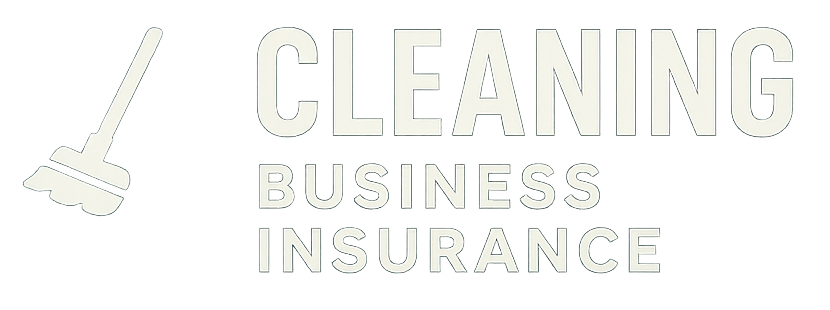In today’s digital age, even cleaning businesses face risks related to data breaches, online contracts, and cyberattacks. While many cleaning companies primarily focus on physical risks—like property damage or employee injuries—cybersecurity is becoming an essential consideration. Cyber Liability Insurance is an often-overlooked coverage that can protect cleaning businesses from the financial and reputational consequences of digital threats.
Understanding Cyber Risks in the Cleaning Industry
It may seem unlikely that a cleaning business would be a target for cyberattacks, but the reality is that any company handling client information, payment data, or contract details is vulnerable. Modern cleaning businesses often maintain digital records of customer addresses, credit card information, employee data, and service agreements. A hacker gaining access to this sensitive information could result in serious financial losses, legal complications, and damage to your reputation.
Even small breaches can be costly. For example, if a client’s personal information is stolen due to inadequate security on a cleaning company’s system, the business may face lawsuits or regulatory fines. Additionally, ransomware attacks can lock a company out of its own records, potentially halting operations for days or weeks. Without cyber liability coverage, cleaning business owners would bear these costs directly.
How Cyber Liability Insurance Protects Cleaning Businesses
Cyber Liability Insurance provides financial protection against losses resulting from cyber incidents. For cleaning businesses, this coverage typically includes expenses related to data breaches, cyberattacks, and network security failures. Some of the key protections include:
Data Breach Response – Covers the cost of notifying clients and employees if personal information is compromised, along with credit monitoring services to mitigate identity theft risks.
Legal and Regulatory Expenses – Helps cover attorney fees, settlements, and fines that may arise from privacy violations or regulatory noncompliance.
Business Interruption Coverage – Provides financial support if a cyberattack temporarily prevents the business from operating, which can be critical for companies relying on digital scheduling and invoicing systems.
Cyber Extortion and Ransom Payments – Protects against the financial impact of ransomware attacks, which can lock your digital systems and demand payment for their release.
By including cyber liability coverage in their insurance portfolio, cleaning businesses can safeguard not only their operations but also their clients’ trust.
Digital Contracts and Client Data
Most cleaning businesses rely on digital contracts for convenience and efficiency. Online scheduling platforms, electronic invoices, and digital signature systems streamline operations but also introduce cybersecurity risks. Cyber liability insurance can help cover costs if these platforms are hacked, contracts are altered, or sensitive client data is exposed.
Maintaining strong digital security practices in tandem with insurance is crucial. Regular software updates, password protocols, and employee cybersecurity training reduce the likelihood of breaches, while insurance ensures protection if a breach occurs despite these precautions.
Employee Data and Internal Threats
A significant portion of cyber risks comes from within the organization. Employees who store client data on personal devices, use unsecured Wi-Fi networks, or fall victim to phishing attacks can inadvertently expose the business to data breaches. Workers handling payroll, scheduling, or client information should be trained on cybersecurity best practices.
Cyber liability insurance complements these internal protections by covering the costs associated with internal data breaches or human error, which are among the most common causes of cyber incidents. It can also provide support in investigating breaches and notifying affected parties, which is a legal requirement in California.
Regulatory Requirements in California
California has some of the strictest privacy laws in the United States, including the California Consumer Privacy Act (CCPA). Cleaning businesses handling personal information may be legally required to protect this data and notify clients in the event of a breach. Failure to comply can result in significant fines and legal action. Cyber liability insurance can help cover these costs and provide guidance on regulatory compliance during an incident.
Why Cleaning Businesses Often Overlook Cyber Coverage
Many cleaning business owners focus on traditional insurance policies such as general liability, workers’ compensation, and commercial auto coverage, assuming cyber threats are not relevant to their operations. However, as technology becomes more integrated into scheduling, payment, and communication systems, even small cleaning businesses face potential exposure.
Without proper coverage, a data breach could result in financial strain, loss of client trust, and reputational damage that takes years to repair. Cyber liability insurance ensures that cleaning companies can recover quickly and continue operating with confidence.
Choosing the Right Cyber Liability Policy
When selecting a policy, cleaning business owners should consider:
The types of data stored and transmitted, including client and employee information.
Whether contracts are handled digitally and if online payment systems are used.
The size of the company and the potential financial impact of downtime or legal action.
Coverage limits for legal fees, settlements, and regulatory fines.
It’s also important to review policy exclusions and work with an insurance provider who understands the unique risks of cleaning businesses.
Conclusion
In an increasingly digital world, cleaning businesses in California cannot afford to overlook cyber risks. Cyber Liability Insurance provides a safety net against the financial and legal consequences of data breaches, ransomware attacks, and compromised digital contracts. Combined with strong internal security practices, this coverage helps cleaning companies protect sensitive client and employee information, maintain regulatory compliance, and preserve their reputation.
For cleaning business owners, cyber liability insurance is no longer optional—it’s an essential component of a comprehensive risk management strategy, ensuring your company can thrive even in the face of unexpected digital threats.
